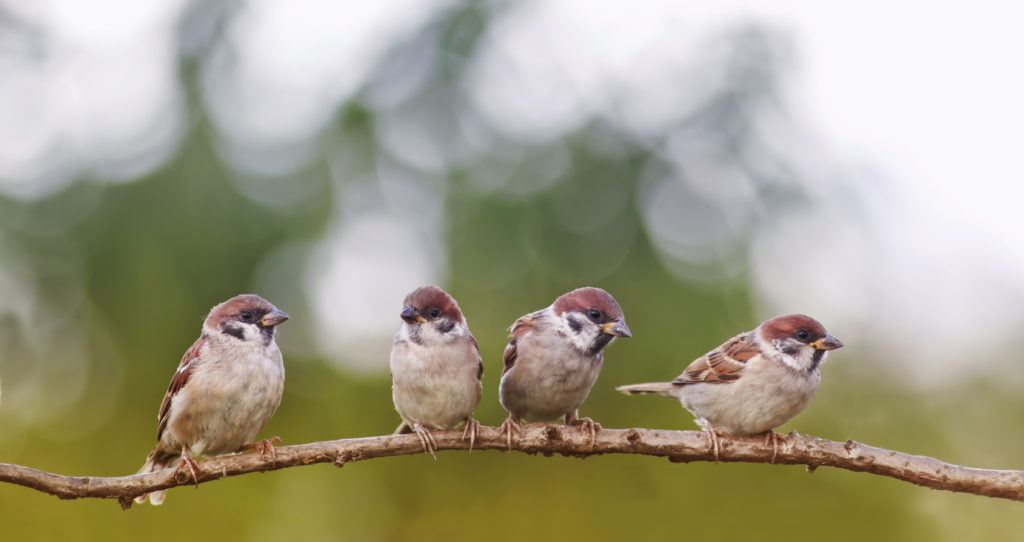Quick Hits
Daily brief research updates from the cognitive sciences

Waking up to an early morning chorus of birdsong is nice. No doubt about that. But the benefits could be much more significant than just a fleeting feeling of positivity (and followed by a groan to get out of bed by some).
Researchers at Kings College London have just reported on the results of a study that tracked people’s exposure to birdsong and the resulting mental health impact – with some very positive results.
Hammoud et al. tracked 1’292 participants over three years who completed an impressive 26’856 assessments. They used an app that asked them three times a time whether they could hear birdsong and then followed up with questions on mental health.
What did they find?
They found that seeing or hearing birds was associated with an improvement in wellbeing and that this can last up to eight hours. Not bad for a bit of birdsong. What’s more they also found that this also improved wellbeing in those suffering from depression.
This supports plenty of other research into the benefits of nature and specifically of just birdsong. I reported on the positive effects of biodiversity and birdsong here. But these researchers were also able to account for co-occurring other environmental factors such as seeing tress – we also know greenspace has a positive benefit – and found that birdsong alone could account for positive benefits.
So, that’s all good news – surprising and effective method to improve mental wellbeing – so open the windows and listen to the birds. It will do you good.

Andy Habermacher
Andy is author of leading brains Review, Neuroleadership, and multiple other books. He has been intensively involved in writing and research into neuroleadership and is considered one of Europe’s leading experts. He is also a well-known public speaker, speaking on the brain and human behaviour.
Andy is also a masters athlete (middle distance running) and competes regularly at international competitions (and holds a few national records in his age category).
References
Ryan Hammoud, Stefania Tognin, Lucie Burgess, Nicol Bergou, Michael Smythe, Johanna Gibbons, Neil Davidson, Alia Afifi, Ioannis Bakolis, Andrea Mechelli.
Smartphone-based ecological momentary assessment reveals mental health benefits of birdlife.
Scientific Reports, 2022; 12 (1)
DOI: 10.1038/s41598-022-20207-6
More Quick Hits
Behaviour at eight helps predict midlife health behaviours
A long-term study in Finland has tracked children from the age of eight until the age of 50 and a new analysis of the data, just published, has looked at some of the correlations between socioemotional behaviour in childhood and later life achievement and health...
Psychedelics and consciousness
Psychedelics change our conscious experience of the world – that is part of their attraction. Now a new study out of John Hopkins Medicine has analysed data on attributions of consciousness to other animals and innate objects by those using psychedelics and how this...
Lower smartphone usage increases wellbeing
So much has been said about smartphone usage in modern times. This ranges from some who say that they are destroying our brain to others who see they benefit our cognition by outsourcing cognitive heavy tasks like remembering lists of phone numbers – thereby freeing...
Modesty preferred for cooperative teams
In an age where it appears that many people are vying for self-esteem especially through social media, this research is interesting. Particularly in business contexts where cooperation is king. Research has previously shown that appearing to be wealthy increases...
Poverty shrinks babies’ brains
Quick HitsDaily brief research updates from the cognitive sciences couple of studies have just been released which look at the brains of newborns and young babies. The results are worrying for any society. Brain scans of newborn babies from...
Babies born with five from seven functional brain networks
In the 1950s the blank slate theory was the most prominent theory ascribed to babies. They are born blank slates and then their experiences allow them to develop their networks thoughts, associations, etc., and just about everything else. Though this theory is long...






